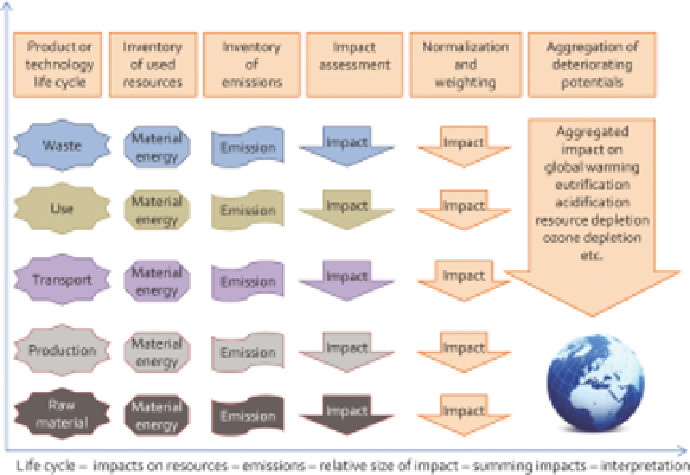Environmental Engineering Reference
In-Depth Information
-
Gate-to-gate is a partial LCA that looks at only one value-added process. It is used,
when the changes are limited to the production chain. It is a module, which may
later be linked to a complete LCA.
-
Eco-LCA considers a broader range of ecological impacts than normal LCA. It
was designed to provide a guide to wise management of human activities by under-
standing the direct and indirect impacts on ecological resources and surrounding
ecosystems. It is a quantitative tool, which takes into account all ecosystem services
during the entire product life cycle.
-
Life cycle energy analysis (LCEA) accounts for all direct and indirect energy
inputs during manufacture: production of components, materials and provision
of services.
A full life cycle assessment for products works by evaluating environment loading
consumptions and emissions due to production, transport, use and waste phase of a
product, summarizing the most important environmental impacts, excluding adverse
health and environmental effects by chemicals (Figure 8.7). Energy consumption is
expressed in an energy-currency equivalent value, so that they become additive. A crit-
icism of LCA is that it considers energy efficiency alone in deciding which alternative
process to employ and does not take into account e.g. the renewability of energy flows
or the toxicity of waste products. Social implications of products are generally not
considered in LCAs. A comparative life cycle analysis can yield a very useful result by
determining a better process or product, but no general conclusions can be expected.
It would be worthwhile to integrate the life-cycle approach with environmental risk
Figure 8.7
Management of products and technologies uses life cycle assessment supporting the
comparative evaluation of alternatives.

Search WWH ::

Custom Search